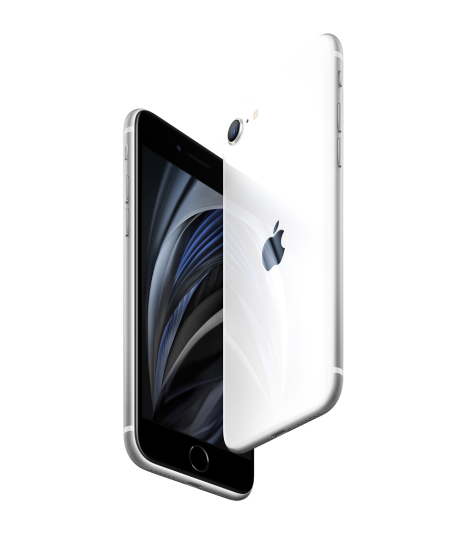iPhones Depreciate Less Than Any Other Phone

So it turns out that iPhones aren't actually as expensive as we all probably thought. And no I'm not talking about buying them from some weird or sketchy site like wish.com. Nor am I talking about the anticipated price drops in their 2020 iPhone 12 lineup. I'm talking about buying new iPhones directly from Apple in or any certified retailer in general at full price.
For a long time, I criticized Apple for the price of their phones, especially with a lot of Android smartphones in the market that offer similar, or better features for a lower price. But I was wrong. I was so, so wrong. I recently decided to calculate the actual depreciation on most Apple, Samsung, and Google smartphones from the past 3 to 4 years, and the results were pretty shocking.
By depreciation, I simply mean the cost of the phone brand new on launch date, minus the average price you could sell it for on the secondhand marketplace now, in July of 2020. And, assuming you buy a phone, take pretty good care of it, and sell it when you're done, the true cost of owning that phone can is equal to its depreciation. For example, let's say you buy a smartphone for $600, use it for 12 months, and then sell it for $300. The true cost of owning and using that phone for a year was actually only $300, or $25 per month.
Going into this, I expected the pricier iPhones to lose their value really fast in comparison to Android phones, but what I found was actually the opposite. iPhones actually hold their value on the secondhand market quite well, and on average, much better than their Android competitors.
I uncovered quite a few interesting trends diving into this project that will absolutely help you make better smartphone purchasing decisions. Here's a link to the report if you want to follow along. Let's get into it.
To calculate the depreciation rates of each phone I gathered used smartphone sales data from Swappa.com which is a very reputable second-hand tech marketplace and crunched the numbers in a free program called google data studio. If you want to view this report for yourself I'll leave a link in the description below, and while you're down there please do hit the like and subscribe buttons, it really helps support this channel.
So first, I'll draw your attention to the far right side of the table where we see the actual calculated depreciation per month for each phone. Assuming you buy the phone at launch and sell it used in average condition, this is a pretty good estimate of your actual cost per month to own the phone.

I will make a quick sidenote before someone jumps into the comments to critique my math, this is assuming a linear depreciation rate, which is not a perfect model, I am currently waiting for a response from Swappa to see if they'll grant me access to their historical data so I can build out some more accurate time-series graphs and maybe make some predictive depreciation models. Ahem*Nerd!*hem. Like I said though, this is a pretty good estimate.
With our large sample of phones spanning multiple generations of releases, we can sort on the various columns and find some pretty interesting trends. The first and most obvious is the lower monthly depreciation rate of iPhones in comparison to Google and Samsung. In fact on average, iPhones depreciated about $18 per month vs the $23 of Google's Pixel line, and the $48 per month of the Samsung Galaxy line. We can also pretty clearly see that the larger storage variants of phones depreciate faster than their base model counterparts.

The same goes for the larger screen size versions meaning the plus's, the max's, and the XL's. We can also very easily see the correlation between higher launch prices and higher monthly depreciation. The opposite is true for phones with lower launch prices.
This is pretty logical, yet practical, information as the higher a phone's price is, the more room it has to depreciate. Even when normalized by percentage though, the higher-priced phones tend to depreciate at an overall faster rate. The biggest offenders are Samsung's most recent releases which have depreciated at alarmingly fast rates. Rest in peace to whoever purchased the Samsung Galaxy S20 Ultra 5G at launch prices. Though honestly, most people who did probably don't care enough about money to care too much about its depreciation.
Now obviously, we also see that the very old phones, particularly the lowest priced ones, lose the least amount of value each month. This simply means that those who wish to spend the least amount possible on their phone should aim to purchase budget-friendly phone models and use them as long as possible - the iPhone SE is a perfect example of this. You can see that regardless of which iPhone SE model you purchased at launch, if you managed to use it until just recently, it only cost you about $3-4 per month to own the phone.

So what does all this mean and how can it help you make more informed smartphone purchasing decisions? Well for one, avoid buying Android smartphones, especially Samsungs, at their launch prices - as soon as you drive them off the lot they lose value. Wait at least a few months and grab a mint condition or gently used one from a used smartphone marketplace such as Swappa once they have depreciated several hundred dollars or more.

Secondly, and I can't believe I'm actually saying this, don't feel so bad about buying that new iPhone, even on launch day. They hold their value better than most phones, and on average will cost you much less than most Android phones as long as you keep it in decent shape and sell it when you're done with it. Your absolute best bet is going to be to purchase the budget iPhone models, which right now would be the iPhone SE 2020 edition, the iPhone XR, or the iPhone 11.

These budget models are less expensive upfront, but still carry the Apple brand and quality making them attractive later on down the road on the secondhand market.
Personally, I would absolutely recommend the iPhone 11 to anyone in the market for a budget-friendly iPhone as it strikes the perfect balance of still a being a relatively new phone, meaning you can get a lot of use out of it, it is one of the lower-priced iPhone models to begin with, meaning it should depreciate less than it's Pro model counterparts, and lastly, it's already seen extremely low levels of depreciation in its first 9 months on the market. To anyone who purchased the iPhone 11 at launch, congratulations!
Intentionally or not, and assuming you can afford the phone, you likely made a very financially sound smartphone purchase.
Watch the video:

